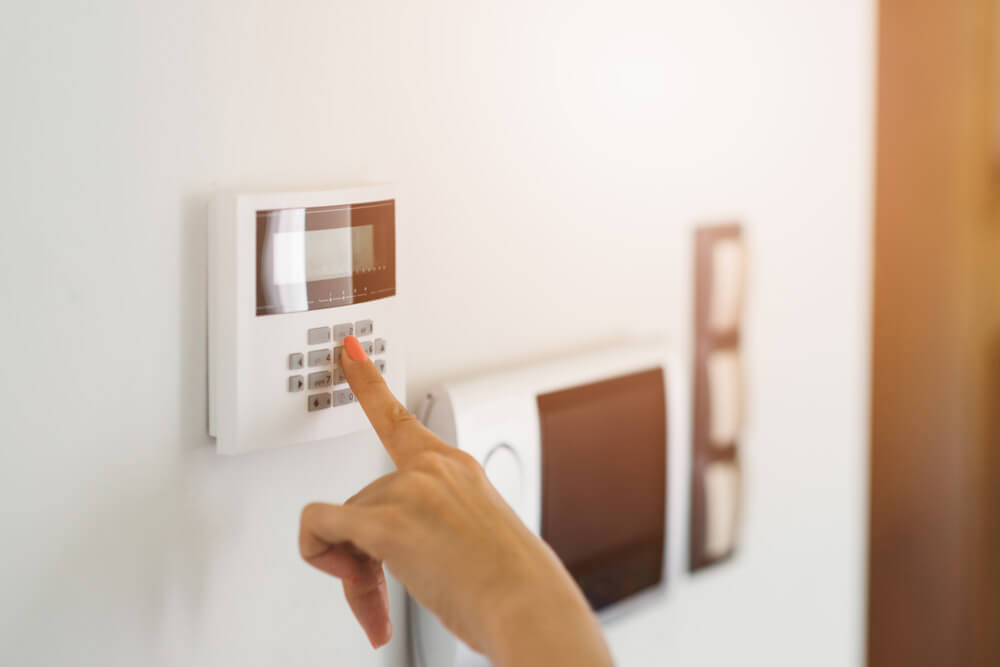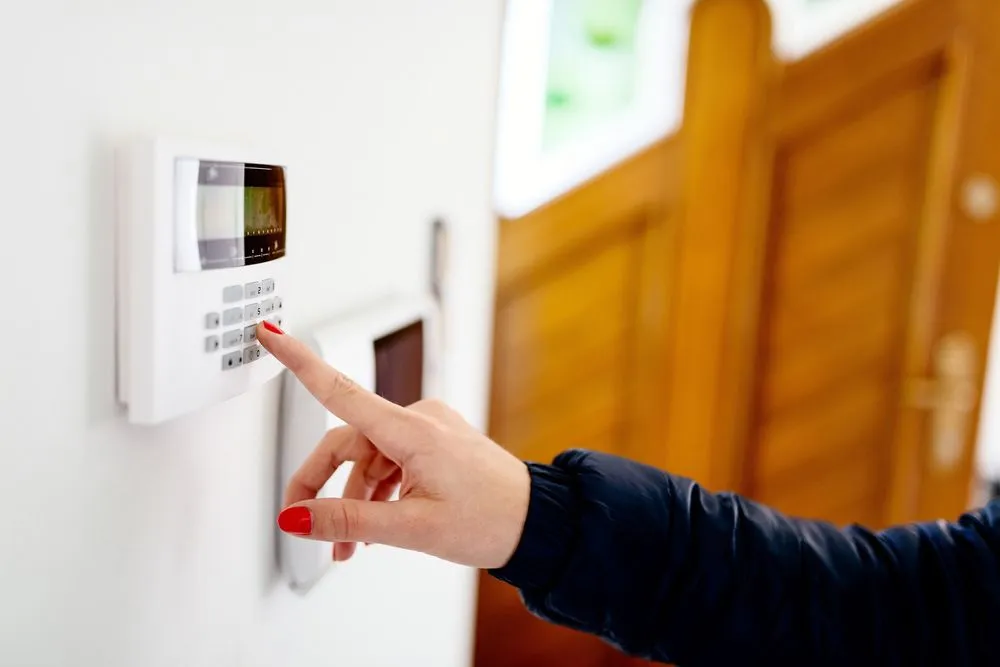
In today’s fast-paced business landscape, ensuring the safety and security of your assets is more critical than ever. Commercial security alarm systems serve as a foundational layer in protecting your business from potential threats, whether they are from intruders, natural disasters, or even internal breaches. This article explores the various aspects of commercial security alarm systems, highlighting their importance, types, features, and impacts on business operations.
Understanding the Importance of Commercial Security Alarm Systems
Commercial security alarm systems are not just an accessory for businesses; they are an essential component for safeguarding resources, personnel, and proprietary information. The importance of such systems cannot be overstated, as the right alarm system can deter crime and provide a rapid response to emergencies.
Furthermore, security systems enhance customer confidence as clients and customers feel safer transacting with businesses that take security seriously. It reflects a commitment not only to the physical safety of the space but also to upholding the integrity of the business. In an era where data breaches and theft are rampant, showcasing a robust security infrastructure can be a significant differentiator in a competitive market.
The Role of Security Systems in Business
Security systems play a myriad of roles within a business, from monitoring premises in real-time to alerting owners and authorities during a breach. These systems are designed to work 24/7, ensuring constant protection whether employees are present or not. By employing various sensors and alarms, organizations can detect intrusions before they escalate into significant losses. Additionally, modern systems often integrate with smart technology, allowing for remote monitoring and control via mobile devices, providing business owners with peace of mind even when they are away from the premises.
Adopting a robust security system allows companies to maintain business continuity by minimizing disruption during and after incidents. Moreover, a consistent and proactive security approach can lead to an improved workplace environment, allowing employees to focus on their tasks without worrying about potential threats. The presence of security measures can also foster a culture of safety, where employees feel valued and protected, ultimately enhancing productivity and morale.
Why Your Business Needs a Security Alarm System
No matter the size or industry, every business can benefit from a well-implemented security alarm system. Theft, vandalism, and unauthorized access can occur in any setting, leading to financial headaches and operational disruptions. Investing in such systems is a relatively small cost compared to the potential loss that can occur from a security lapse. Moreover, the psychological impact of a security breach can linger long after the incident, affecting employee trust and customer loyalty.
Additionally, many insurance companies offer discounts on policies for businesses that have active security systems in place. This can contribute to significant savings, making the investment in a security alarm system even more appealing. Furthermore, businesses can leverage these systems to comply with industry regulations and standards, which often mandate certain security measures. By doing so, companies not only protect their assets but also enhance their reputation in the eyes of stakeholders, customers, and regulatory bodies alike.
Different Types of Commercial Security Alarm Systems
Security alarm systems come in various forms, each tailored to meet specific needs. Understanding these types can help businesses choose the right system to enhance their security posture effectively.
Intrusion Detection Systems
Intrusion detection systems are essential for detecting unauthorized entry into a building or secure area. They utilize various technologies, including motion detectors and door/window sensors, to alert business owners of any breach. When activated, these systems sound alarms and notify security personnel or law enforcement, ensuring a rapid response to potential threats.
These systems can be customized with various features, such as perimeter monitoring and panic buttons, tailored to the unique requirements of different businesses. For instance, a retail store may benefit from glass break sensors that trigger alerts when windows are shattered, while a warehouse might prioritize motion sensors that cover large areas. Additionally, modern systems can be integrated with smart technology, allowing for remote monitoring via smartphones or tablets, giving business owners peace of mind even when they are away from the premises.
Access Control Systems
Access control systems are designed to regulate who can enter various areas within a business. Using keycards, biometric scans, or keypad entry, these systems increase operational security by restricting access to sensitive areas. This not only helps in preventing unauthorized entry but also allows businesses to monitor who is present in the facility at any given time.
Integrating access control with alarm systems can provide comprehensive security coverage, ensuring any unauthorized access triggers a response. Furthermore, many access control systems come with advanced reporting features, enabling businesses to track entry and exit logs. This data can be invaluable for identifying patterns or potential security breaches, as well as for compliance with safety regulations. With the rise of remote work, some systems also offer mobile access, allowing employees to enter the premises without physical keycards, streamlining the process while maintaining security.
Video Surveillance Systems
Video surveillance systems are pivotal in maintaining security across business premises. With advancements in technology, high-definition cameras provide clear imagery, even in low light, allowing for effective monitoring of activities within and around the business. These systems can be integrated with alarm systems to provide real-time feeds and alert personnel of suspicious activities.
Moreover, having visible cameras can act as a deterrent to potential wrongdoers, reducing the likelihood of incidents before they occur. The ability to store footage for later review also plays a crucial role in investigations following an incident. Many businesses are opting for cloud-based storage solutions, which not only secure the footage off-site but also allow for easy access and management from anywhere. Additionally, features such as motion detection and facial recognition are becoming increasingly common, enabling businesses to enhance their surveillance capabilities and respond more effectively to security threats.
Key Features to Consider When Choosing a Security Alarm System
When selecting a security alarm system, several key features warrant consideration to ensure the chosen system aligns with business needs.

System Integration Capabilities
Choosing a system that integrates well with existing security measures can significantly enhance overall protection. Seamless integration with fire alarms, video surveillance, and access control offers a comprehensive security strategy, allowing businesses to respond effectively to any threats. Learn more about home security camera installation: enhancing your property’s protection.
Integrated systems streamline operations and reduce complexity, making it easier for business owners to monitor their security status from a single platform. Moreover, the ability to centralize data from various security components not only improves response times during emergencies but also facilitates better analysis of security incidents over time. This holistic view can help in identifying patterns and vulnerabilities, leading to more informed decision-making regarding future security investments.
Ease of Use and Installation
The ideal security alarm system should be user-friendly, ensuring that employees can operate it without extensive training. A complicated system can lead to operational inefficiencies and may ultimately compromise security.
Additionally, ease of installation is crucial. Systems that require minimal disruption during setup can save time and reduce the risk of operational downtime. A straightforward installation process often includes clear instructions and support from the provider, which can be particularly beneficial for businesses without dedicated IT staff. Furthermore, systems that offer mobile access and remote management capabilities enhance convenience, allowing business owners to monitor and control their security systems from anywhere, thus providing peace of mind even when they are off-site.
Cost and Maintenance Considerations
While the upfront cost of security alarm systems is a critical factor, businesses should also consider the long-term costs of maintenance and monitoring. A system that may appear inexpensive initially could incur high costs over time due to maintenance needs or subscription fees for monitoring services.
Ensuring that the total cost of ownership is well understood is essential for businesses to make informed decisions that fit their budgets while ensuring adequate security. Additionally, it’s wise to inquire about warranty options and the availability of customer support, as these can significantly affect long-term satisfaction and operational reliability. Investing in a system with robust support and maintenance options can mitigate unexpected expenses and ensure that the security system remains effective and up-to-date with the latest technology advancements.
The Impact of Security Alarm Systems on Business Operations
Investing in security alarm systems can have profound implications for business operations, affecting employee morale, asset protection, and overall risk management.
Enhancing Employee Safety
A secure environment allows employees to feel safe and focus better on their job roles. When an organization prioritizes safety through proper security measures, it fosters a culture of trust and responsibility. This can lead to increased productivity and morale among employees, enhancing overall performance.
Moreover, knowing that there are measures to protect them in case of emergencies can significantly reduce workplace anxiety, allowing employees to perform at their best.
Protecting Business Assets
Business assets, ranging from inventory to proprietary information, require robust protection. Well-implemented security alarm systems safeguard these assets from theft, damage, or loss, ensuring business continuity and financial stability. In the event of an incident, having a security system can facilitate quicker recovery by providing evidence and assisting in investigations.
Protection extends beyond physical assets; ensuring cyber data security is equally important. Many modern security systems come with features to safeguard digital assets as well.

Reducing Insurance Costs
Many insurance providers offer lower premiums to businesses equipped with verified security alarm systems. By reducing the risk of theft and losses, businesses can negotiate better terms with insurers, leading to significant cost savings over time. These savings can be redirected to other vital areas of the business, fostering growth and innovation.
Moreover, maintaining comprehensive documentation of security measures can further enhance a business’s credibility and standing with insurance partners.
In conclusion, integrating a commercial security alarm system is not just a matter of compliance or risk mitigation; it’s an investment in the overall health and viability of a business. By understanding their importance, evaluating different types, and considering key features, business owners can make informed decisions that protect their assets, enhance employee safety, and ultimately contribute to a thriving workplace.